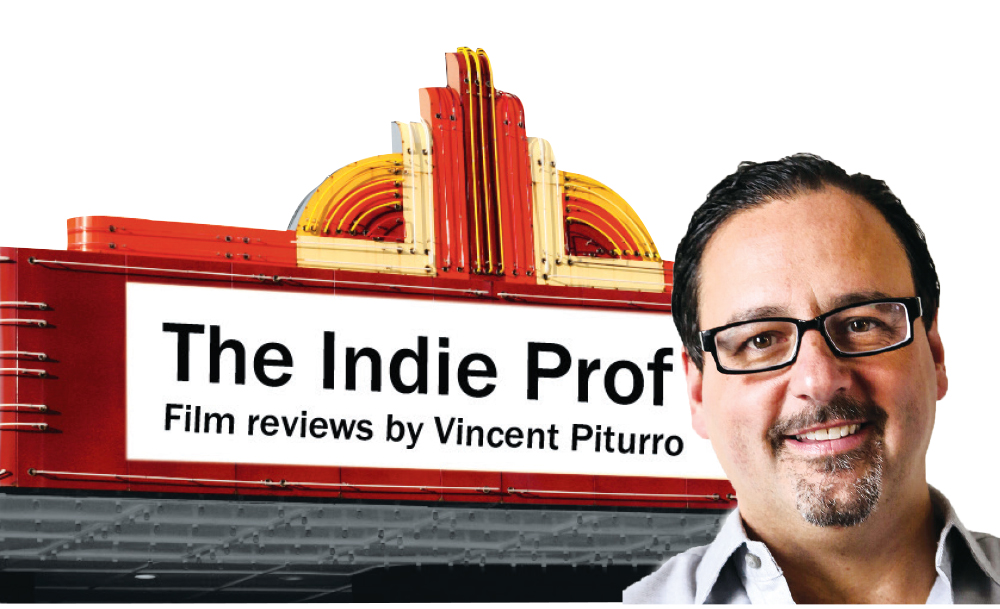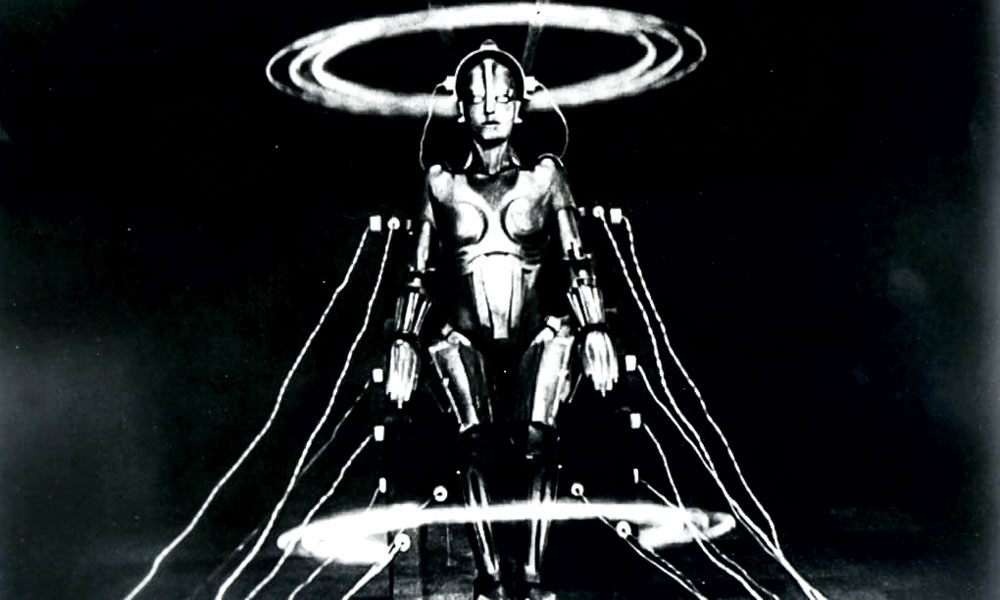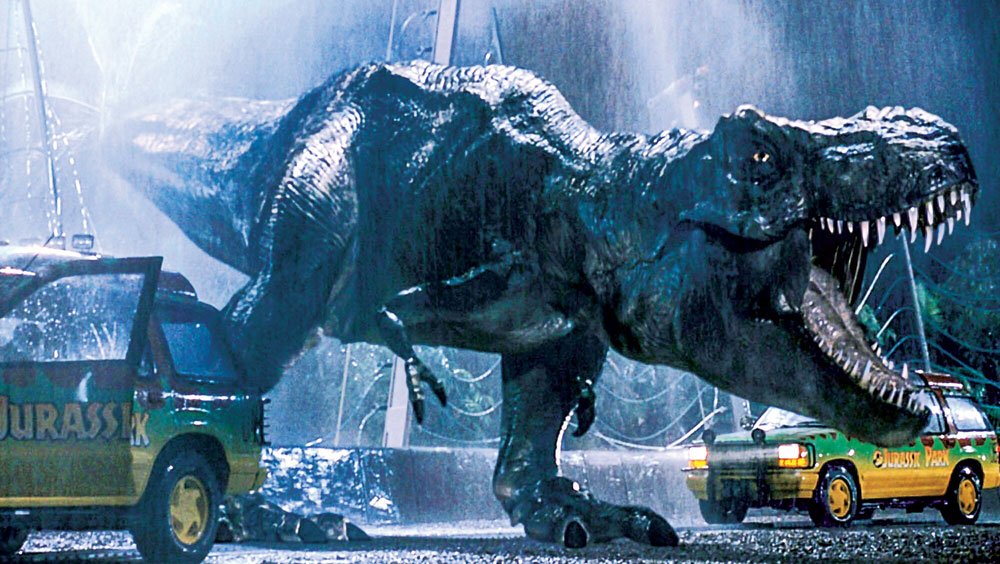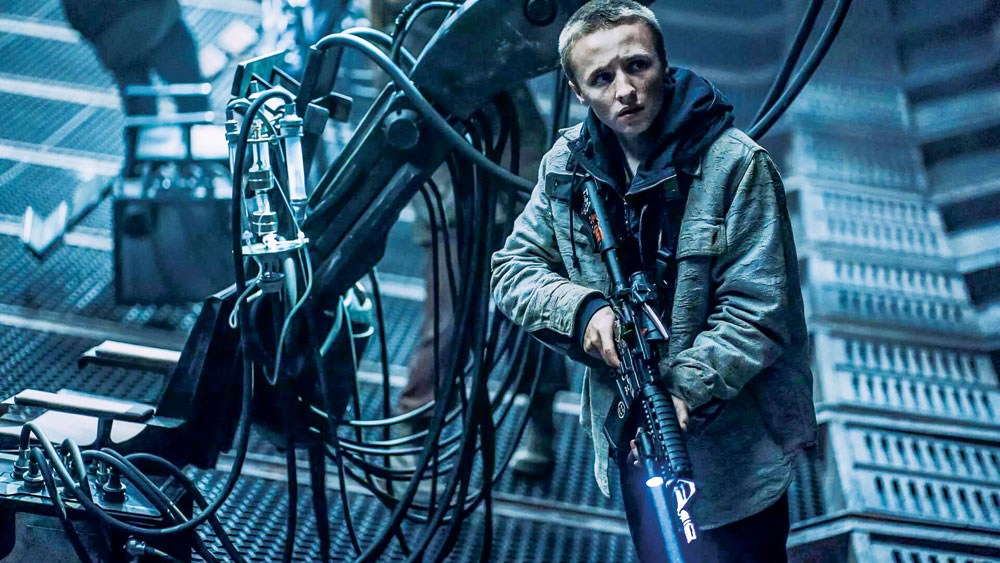
July is sci-fi season once again. The 11th annual Science Fiction Film Series, sponsored by the Denver Museum of Nature and Science, the Denver Film Society, and MSU Denver, will continue with three virtual shows this year. The first was in June, but details on the next two are below. Stay tuned for more news on a special show at the Museum in the fall, when they are back to full capacity and when we unveil a book project two years in the making. I also give a short review of an excellent sci-fi series on TV now.
Tuesday, July 7: Metropolis with space scientist KaChun Yu

Metropolis
This is a virtual show, and you will need to screen the film on your own. It is also available through the Virtual Cinema at www.denverfilm.org. A caution: there are many different versions of the film, and the Film Society will have the best, complete version of this brilliant, seminal sci-fi classic.
Produced in 1925 by legendary German director Fritz Lang, Metropolis was the film that gave us so much of the sci-fi look we still use today. It has everything you want in sci-fi: a clash between the poor and the rich, a bifurcated society literally built on the backs of the poor, an autocrat who uses a mad scientist to create a robot (Maria!) which then wreaks havoc on society and widens the divide, and a love story wherein the angel comes to the aid of the poor to lead them out of bondage. If all that sounds melodramatic, formulaic, or even sappy, you are not wrong, but this was the first film to put all of all that together. And that is barely half the tale.
The visuals are the real tale: Lang was a technical genius, working in an era when film was edited by hand with scissors and glue and synchronous sound was still a few years away. The sets are marvelous, the lighting is dazzling, the editing is staggering, and the special effects were groundbreaking and far ahead of its time. At times it plays like a Wagnerian opera with a futuristic look that still resonates today. The poor, working class move in rhythmic repose in their underground dungeons on their way to and from work as though they are hypnotized while the rich comport in frenzied, jerky movements as they race through their pleasure-garden-filled world. The visuals make you feel.
Some of those visuals are iconic: the futuristic skyscrapers (inspired by a trip to NYC in the 20s), the flying cars and busy megalopolis with the money-baron looking down, and even certain building designs that were copied by such films as Blade Runner, among others. And of course there is the robot Maria—a cultural icon brought to life in a flash of brilliance that remains energetic and has inspired countless copies and iterations. You will know it when you see it even if you have never seen it.
Join us for the virtual discussion as I analyze the film while space scientist KaChun Yu analyzes the science. For details and tickets, go to www.denverfilm.org or https://secure1.dmns.org/sci-fi-film-series-metropolis.
Tuesday, July 20: Jurassic Park with paleontologist Tyler Lyson

Jurassic Park
The thrilling classic directed by Steven Spielberg in 1993 doesn’t disappoint today with its thrills and chills. Spielberg imbues the film with his classic mix of comedy, drama, and humanity while keeping us on the edge of our seats. You get the added bonus this time of screening it at the Film on the Rocks series on Monday, July 19, and then joining our virtual discussion the next day. We will discuss the groundbreaking special effects of the film—which changed the movies forever—as well as the actual science of bringing dinosaurs back to life. There is so much to discuss!
For more information and tickets, go to the www.denverfilm.org site and search for Film on the Rocks. Be sure to get tickets for both the film and the discussion!
The War of The Worlds (Epix)

The War of The Worlds
Oh no! you say, not yet another adaptation of the classic H.G. Wells novel from 1897! The most famous presentation of the original was an Orson Welles 1938 radio broadcast that was presented as an actual alien invasion and supposedly panicked Americans all over the country. A 1953 film adaptation followed, a 2005 Steven Spielberg film starring Tom Cruise was a dud, and then an interesting (and quite frightening) English-produced three-part miniseries followed in 2019. The latest series is a loose adaptation set in France and England, and it is absolutely worth the watch. It is hard to discuss without spoiling but let me say that while it starts out slow with fits and starts, it is rewards for your investment.
As aliens invade, we follow several different stories: an English family where the dad becomes stranded in Paris, an African refugee stowing away to London, a French astronomer in the Alps who is joined by the military, a divorced (and estranged) middle-aged couple who are forced back together, and several subplots therein. The character development is precise and methodical, the acting is excellent, and the writing is crisp and concise. There are a few familiar faces—Gabriel Byrne and Elizabeth McGovern as the couple—but most will be unfamiliar to American audiences. That works.
The direction is what shines here—the characterizations are swift, the cinematography is at times brilliant and then suddenly realist, the editing is remarkable (keeping us grounded with so many different storylines and locations), and the music is more than complementary. The series is a must for sci-fi fans.
Season One is free with most cable systems and Season Two just started on EPIX. (I am getting dizzy with all the new platforms as well!)
Vincent Piturro, Ph.D., is a Professor of Film and Media Studies at MSU Denver. Contact him directly at vpiturro@msudenver or follow him on Twitter.




0 Comments